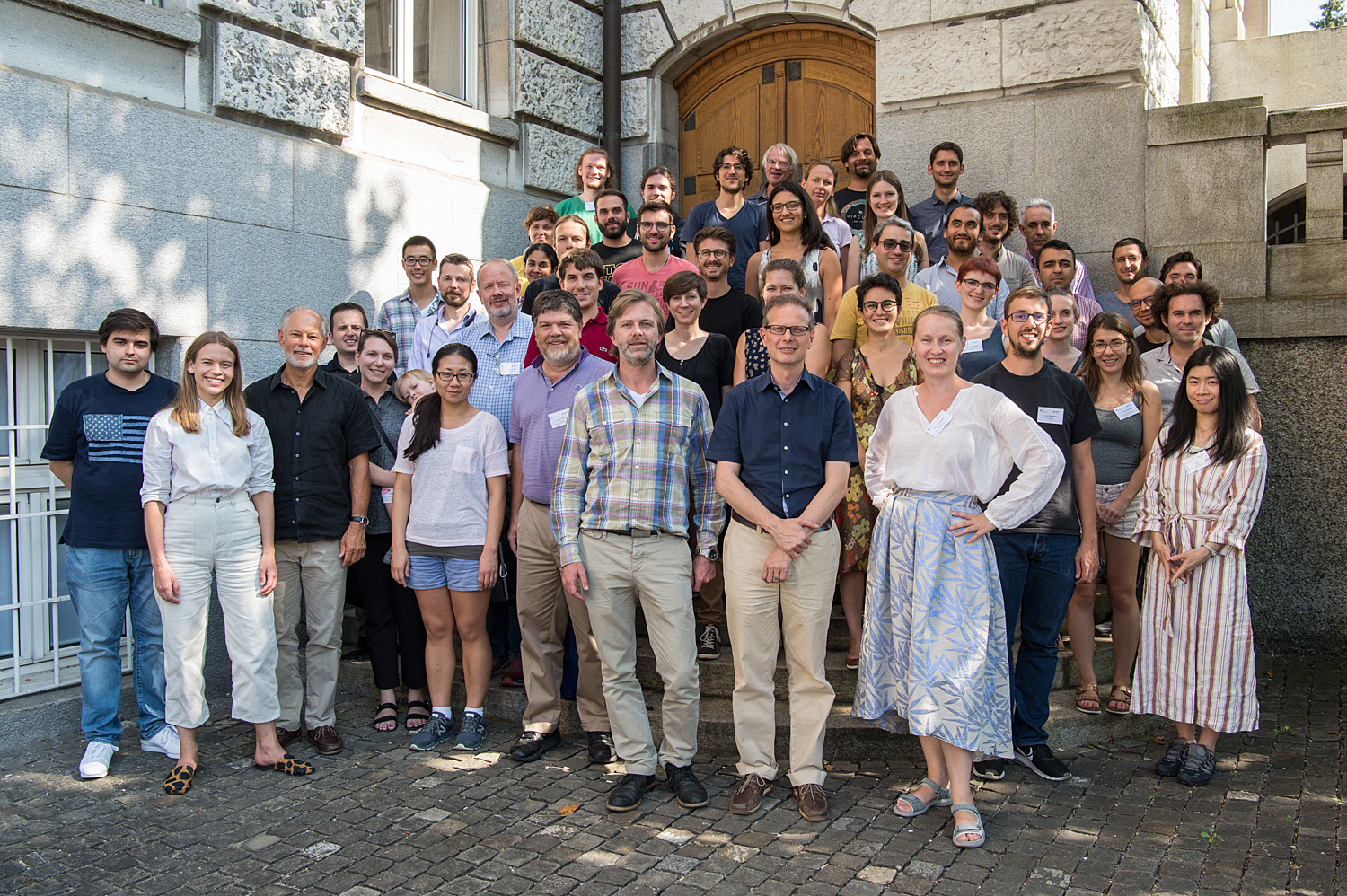PPC 2018 workshop, August 2018
Experts from different fields in Physics discussed the connections between particle physics and cosmology at the international conference 'Interconnection between Particle Physics and Cosmology', which took place in August 2018 in Zurich.

The cosmological mysteries of the universe beyond the galactic scale are intertwined with the minuscule mysteries of the fundamental particles and forces of nature. No where does this all come together more definitively than the 'International conference on interconnections between particle physics and cosmology' (PPC), which just had its 12th annual conference in Zurich in August 2018.
Organized by the University of Zurich and ETH Zurich, the PPC 2018 conference brought together leading scientists studying the very big to the very small, spanning 60 orders of magnitude of physical processes. What is more impressive is that predictions and measurements from one end of the spectrum have significant implications on the opposite end.
One important dilemma to be resolved is that most of the universe is missing.
While astronomical and cosmological measurements have deduced and confirmed the existence of "dark matter'', particle physics have yet to produce or detect any particle that could comprise it. Since 80% of the matter in the universe is dark matter, this is no small discrepancy. Theorists at PPC explained many different possibilities for the nature of dark matter. And while particle physicists presented results from dozens of experiments that attempt to produce dark matter or to detect the dark matter of our galaxy, astrophysicists presented even more detailed measurements of the large-scale properties of dark matter, and the degree of certainty of how the model of our universe from the Big Bang until today comes together.
Other exciting topics covered are the recent ability of astrophysicists to measure strong gravitational processes like the merging of blackholes in galaxies far away using gravitational waves which alter space and time as they pass the earth. Such distant gravitational phenomena can be studied using multiple methods in addition to gravitational waves, including observation by telescopes sensitive to wavelengths of light and incoming particle energies, and even through neutrinos.
Neutrinos are extremely weakly interacting particles that can be produced in nuclear processes and travel straight through space to reach us. While particle physicists at PPC explain their attempts to determine the mass of these elusive particles, and how they obtain a mass to begin with, astrophysicists explained how they use cosmological constraints to measure the same thing. It may be that both sets of scientists will unravel this mystery at the same time !
Finally, the big question that physicists are only to scratch the surface of is what is causing the expansion of the universe to accelerate. To do so, something known as "dark energy", of an unknown origin, is theorized to propel this expansion. While precision cosmological measurements have pinned down many properties of dark energy leading to effects that can be predicted and experimentally verified at large scales, particle physicists do not know the first thing about detecting dark energy.